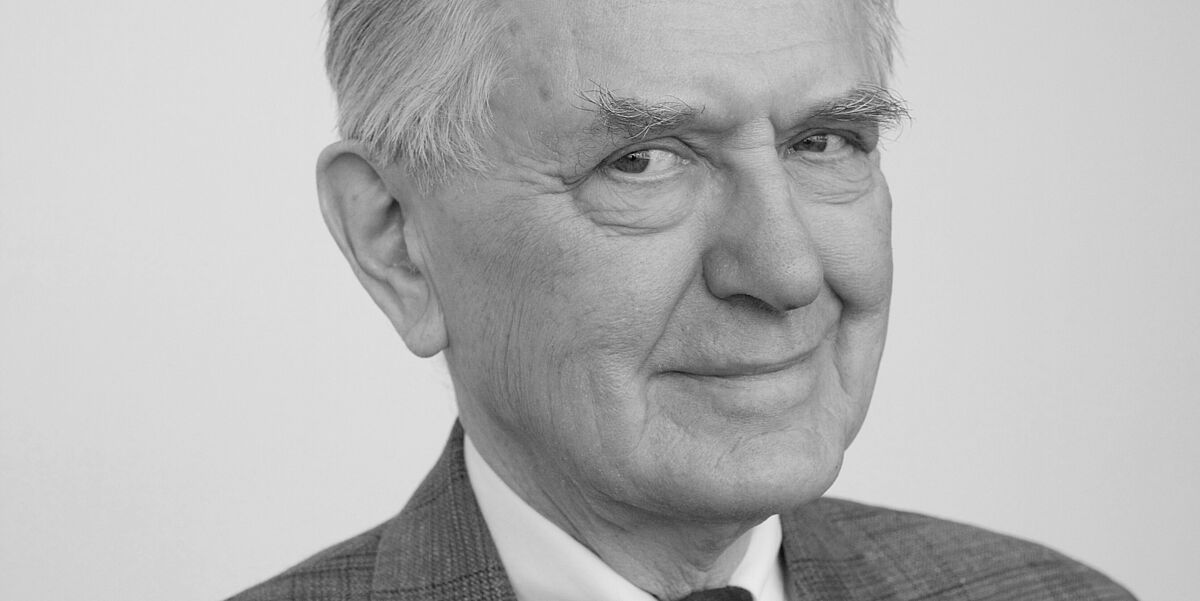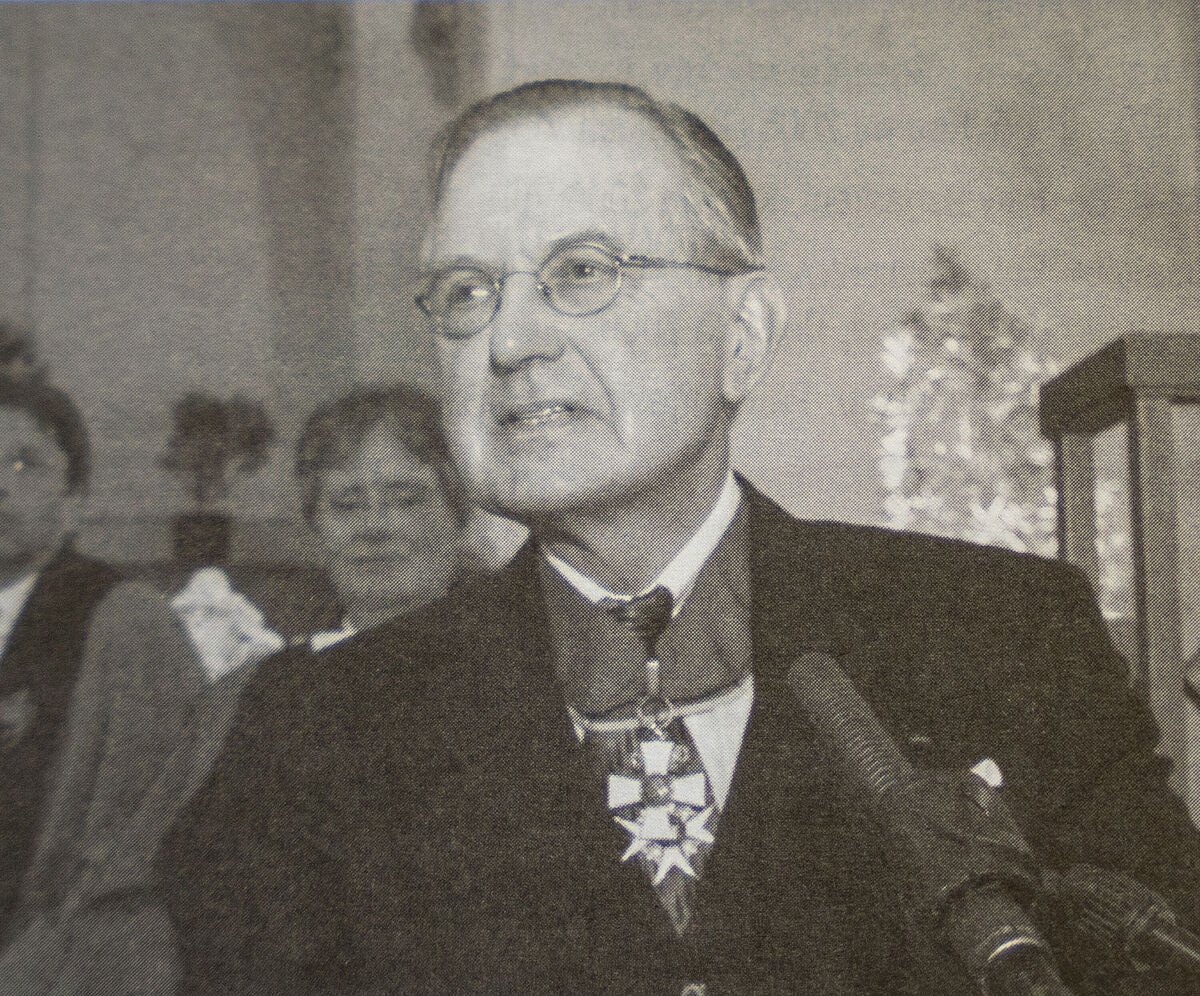Honorary Doctorate Awarded to Matti Klinge
Dean’s Office of the Faculty of Arts and Humanities
Ernst-Lohmeyer-Platz 3
17489 Greifswald
Tel.: +49 3834 420 3001
dekanphfuni-greifswaldde
The well-known Finnish historian, Matti Klinge, honorary doctor at the University of Greifswald, passed away in Helsinki on 5 March 2023, at the age of 86. He was Finland's most well-known historian with an international reputation and who had inspired and influenced generations of Finnish and foreign academics with his extensive body of work, translated into 17 languages.
The Faculty of Arts and Humanities awarded him an honorary doctorate on 7 July 2006. The award recognised his outstanding research in the field of history and the history of culture and civilisation, as well as his services to Finland and the Baltic Sea region. The ceremony was held in St Nicolai's Cathedral as part of the celebrations to mark the 550th anniversary of the university's founding.
By awarding the title to the retired Prof. Dr. Matti Klinge, the University of Greifswald honoured an outstanding international academic with a unique profile specialising in the Baltic Sea region. His distinctive research work that addressed both national-regional aspects of the humanities in the Baltic region as well as topics of European history, reached a large audience and influenced researchers at home and abroad. He published clear-cut theses with a look to Europe in well over a hundred books and works that have been translated into many languages and bear witness to an extremely extensive and multifaceted life's work marked by a fundamental respect for learning. As a young historian, he broke away from past national views and found inspiration in Sweden, among other places, where there was a strong interest in studies into the history of education and thought. In his works on the history of universities with European roots, he emphasised two factors in particular, the emergence of national identity in the light of nation-building and the organisation of civil society. He brought many new aspects and perspectives to Finnish historical research and historiography, including the creation and significance of national myths, symbols, landscape ideals and groups in a hierarchical society.
A major and central theme in his research is the history of the Baltic Sea region and Finland's position within it. He created new maritime perspectives on Finland's early history and refreshingly argued for the existence of two powers in Finland's prehistory. In his book The Baltic World (1994), he provided a well-founded synthesis-based account of the history of the Baltic Sea region from the time of the Great Migration to the collapse of the Soviet Union. In later works with historical subjects from the Baltic Sea, he continued to question old conventional views. A third theme of his impressive body of work is his engagement with European civilisation and educational tradition. Roman-French civilisation took his work to new dimensions by understanding civilisation as the basis for the identity of the individual and the sense of nationhood. He argued for cultural community as the basis for economic and political integration in today's Europe. He was involved in the development of the House of European History in Brussels.
Professor Matti Klinge held numerous academic posts during his career, was editor-in-chief of the Finnish National Biography, a member of the Royal Academy in Stockholm, Finland's Academy of Science, and received several awards for his books and works.
Career
Matti Klinge was born in Helsinki in 1936. He successfully completed his studies at the university there with a master's degree in 1960, worked as a trustee for the influential student corporation and became involved in social issues at an early age. He finished his doctorate in 1967 on "The Emergence of the National-Civic Mentality 1853 to 1871". The following year he became a lecturer at the University of Helsinki until he was appointed Professor of Nordic History in 1975. He held this chair until his retirement in 2001. From 1970 to 1972 he was a visiting professor at the Sorbonne University. In addition to his extensive research on Finland, the Baltic Sea region and Europe, he was an active critic and author, including the publication of a series of academic travel books and diaries in later years. In these publications, he consolidated his European positions and reinforced his name as Finland's leading cultural figure.


